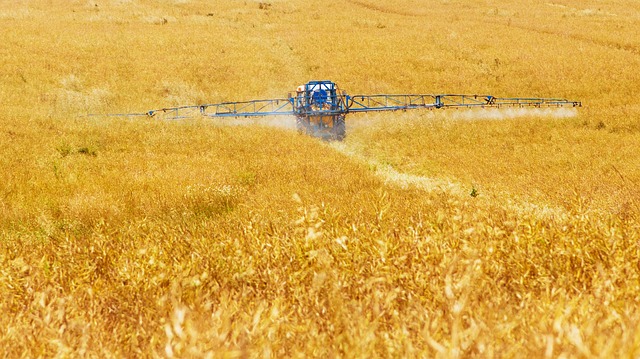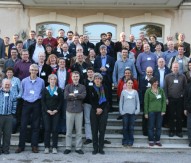
IPM: GMOs, innovation and Horizon 2020
Biosafety research includes the use and implementation of biological control agents into integrated pest management (IPM), genetically modified plants (GMPs) in IPM systems and the evaluation of risks of invasive arthropods and their effects on the environment and agriculture.
Dr Franz Bigler, president of the International Organisation for Biological and Integrated Control-West Palaearctic Regional Section (IOBC-WPRS), underlines how research into biosafety needs to include an awareness and evaluation of both the benefits and the risks. He also gives his views on the role that Horizon 2020 can play in boosting innovation in the sector and on EU regulatory legislation.
What do you hope the obligation for all professional users to apply the general principles of IPM will achieve?
In a general sense, I hope that this will result in a reduction of pesticides in the environment and a reduction of residues in food and feed. Indeed, this is an issue that is rarely highlighted but is of fundamental importance, especially given the fact that global pesticide-related deaths and human intoxications amount to thousands every year.
Indeed, this issue should be discussed and brought to the fore, and many organisations which tend to focus on the issue of genetically modified organisms (GMOs) should perhaps realise that GMOs are in no way as dangerous (if they are ever dangerous), as pesticides.
From an environmental point of view, it is possible to achieve a significant reduction in the amount of toxins in the environment simply by applying more IPM methods and other preventative procedures and the use of new technologies.
This is especially true in regard to arable crops as, in many cases, pesticides are used as the very first stage in pest management, and, it is only when, and if, the pesticide does not work that alternative pest management solutions are considered. That is the wrong approach entirely, and should be reversed so that pesticides are seen as something as a last resort.
What are your thoughts on the integrated use of insect-resistant GM crops within IPM programmes?
Gene technology should be considered as a tool like any other, but one that requires further research and investigation, because it really does have an enormous amount of potential.
However, the GMO debate in Europe is always emotionally-charged, which is a sure barrier to implementation. GMOs are used on 12% of arable land worldwide, and this is a technology that has been adopted in most parts of the world, except for Europe.
Nevertheless, history almost always proves itself to be quite cyclical and there have been numerous other technologies throughout the last century which were met with derision and opposition, but which came to be implemented and, as such, are now an integral, and almost unnoticed, part of modern day life. Given this, I believe that, while GMOs face quite tough, emotional opposition in Europe at the moment, there will come a day when attitudes change and they are accepted.
What makes this argument even more likely is the fact that many European cattle are fed with feed (such as soya) which is imported from the Americas, and which are GMOs, and yet, despite fears, these animals are fit and well, thereby demonstrating that GMOs pose no more of a risk than other conventionally-bred plants. Thus, while it is good that Europe has a stringent system to look at risks, it must also be realised that it is just as important to investigate the benefits.
This is the approach taken by the Americans, who are aware that while all technology has risks, the important thing to ask is whether the benefits outweigh those risks and, currently, this is not being done in Europe.
Nevertheless, it is important to note that I am not promoting GMOs from any kind of commercial standpoint but, as a scientist, I have a duty to argue that a technology that is so powerful and has so much potential should not be discarded.
What impact do you think Horizon 2020 could have in encouraging innovation in IPM and pesticides?
The extent to which Horizon 2020 will be co-ordinated with the European Innovation Partnership is a question of fundamental importance to this, and I hope that within the EIP there will be room for funding the entire IPM field, from the researcher to the farmer.
This is, indeed, something which can be implemented quite quickly, in that things like crop rotation could be implemented almost immediately, requiring only that the farmer receive adequate instructions on how to do it and how he can find an association to facilitate this work.
Other areas, where the real innovation will be, may need more research, and if research packages are put together in Horizon 2020, then this could be the first step along the innovation pathway for results that will begin to emerge between 2025 and 2035.
Indeed, judging from my experience, from the process of going from the beginning of a project to the production of a product that could be put on the market takes at least 10-15 years. Thus, a project begun in Horizon 2020 (so in two or three years’ time) the innovation created therein would not be ready for implementation before 2025.
Despite this quite extended horizon, and even with the existing knowledge base that we have in Europe today, if funds are redirected properly and if policy really comes to frame the context successfully, then I am quite convinced that we can easily reduce the number and amount of pesticides being used in the EU by 50% by 2025. After that, new innovation will be required, and this is where the work that is begun in Horizon 2020 will come to fruition.
Dr Franz Bigler
International Organisation for Biological Control – West Palearctic Regional Section


